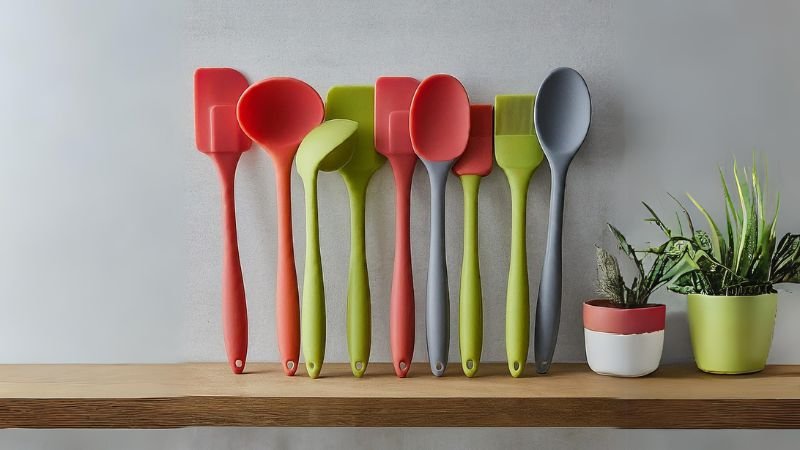Do you worry about the safety of silicone products? You’re not alone. Many consumers and businesses are concerned about the presence of harmful chemicals like phthalates in everyday items. Understanding what goes into your products is essential for making safe and informed choices. This post aims to address these concerns and provide clear, accurate information.
No, there are no phthalates in silicone. Silicone is a synthetic material made from silica, oxygen, carbon, and hydrogen. It’s different from plastics that often contain phthalates. Rest assured, silicone products are generally safe and phthalate-free.
But why are phthalates such a big concern? And what makes silicone a safer alternative? Let’s dive deeper into these questions.
Why Are Phthalates Harmful?
Phthalates are chemicals used to make plastics more flexible. They are found in many products, including toys, food packaging, and personal care items. Research has linked phthalates to health issues such as endocrine disruption, reproductive problems, and even cancer. With such serious risks, it’s crucial to avoid products that contain these chemicals.
How Is Silicone Different?
Silicone is made from silica, a natural compound found in sand. It undergoes a process that transforms it into a flexible, durable material. Unlike plastics, silicone does not require phthalates to achieve its flexibility. This makes silicone a safer choice for products that come into contact with food, skin, or children’s toys.
Is Silicone Always Safe?
While silicone is generally considered safe, it’s important to ensure you’re purchasing high-quality, food-grade silicone products. Poor-quality silicone might contain fillers or other harmful substances. Always look for products that are labeled as FDA-approved or food-grade to ensure safety.
Are All Silicone Products Equal?
Not all silicone products are created equal. High-quality silicone is durable, non-toxic, and resistant to extreme temperatures. It’s used in various applications, from kitchenware to medical devices. On the other hand, low-quality silicone can degrade over time and may not be as safe. Always choose reputable suppliers who prioritize quality and safety.
How to Identify High-Quality Silicone?
High-quality silicone should be odorless, flexible, and heat-resistant. It should not discolor or change texture over time. If a silicone product emits a strong odor or becomes sticky, it might contain fillers or other additives. Conducting a simple pinch test can help: pinch and twist the silicone; if it turns white, it likely contains fillers.
Benefits of Using Silicone Products
Silicone offers numerous advantages over traditional plastics. It’s eco-friendly, reusable, and long-lasting. Here are some key benefits:
- Temperature Resistance: Silicone can withstand high and low temperatures, making it ideal for cooking and baking.
- Non-Toxic: High-quality silicone is free from harmful chemicals, including phthalates.
- Durability: Silicone doesn’t degrade easily, ensuring a long product life.

Applications of Silicone
Silicone’s versatility makes it suitable for various applications. Here are some common uses:
- Kitchenware: Silicone baking mats, spatulas, and molds are popular for their durability and heat resistance.
- Baby Products: Silicone pacifiers, teething rings, and baby bottles are safe for infants.
- Medical Devices: Silicone is used in implants, tubing, and other medical applications due to its biocompatibility.
- Industrial Parts: Silicone’s flexibility and durability make it ideal for seals, gaskets, and other industrial components.
How to Care for Silicone Products?
Proper care can extend the life of your silicone products. Here are some tips:
- Cleaning: Wash with mild soap and water. Avoid abrasive cleaners that can damage the surface.
- Storage: Store in a cool, dry place away from direct sunlight.
- Avoid Sharp Objects: Sharp objects can puncture or tear silicone, reducing its effectiveness.
Are There Any Alternatives to Silicone?
While silicone is a great option, other materials may suit specific needs. Alternatives include glass, stainless steel, and BPA-free plastics. Each material has its pros and cons, but none offer the same combination of flexibility, durability, and safety as silicone.
What Does the Future Hold for Silicone Products?
The demand for safe, non-toxic products is driving innovation in silicone manufacturing. Companies are developing new formulations and processes to enhance silicone’s properties. The future looks bright for silicone, with potential advancements in biodegradable silicone and recycled silicone products.
Conclusion
Silicone is a safe, versatile, and phthalate-free material. Its numerous benefits make it an excellent choice for various applications. Always opt for high-quality, food-grade silicone to ensure safety and performance. With proper care, silicone products can offer a durable and eco-friendly alternative to traditional plastics.
For more detailed information on the safety and benefits of silicone, check out these resources:
That’s it! If you have any further questions or need assistance in finding the best silicone products for your business, feel free to reach out.